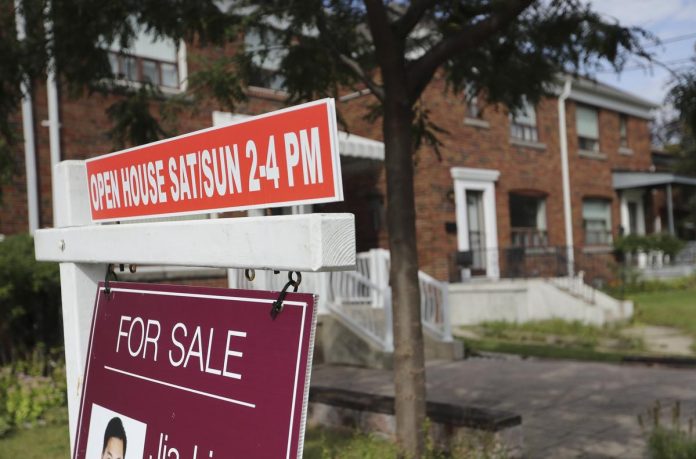
Housing affordability in the Greater Toronto Area (GTA) continued to worsen in January as a severe lack of listings heightened competition between buyers.
New data showed home sales dropped 18.2 per cent year-over-year in the month, with 5,636 properties changing hands. Although sales were down across all property types, it was still the second-highest number of sales ever recorded in the month of January, according to the Toronto Regional Real Estate Board (TRREB).
Active listings plunged 44 per cent to the lowest level in more than two decades, the data showed.
TRREB said the average selling price was a record $1,242,793 – representing a seven per cent increase from December and a 28.6 per cent year-over-year surge. Home prices in the GTA have set all-time highs in four of the last five months.
As the Bank of Canada gears up to hike its benchmark interest rate, many economists and other real estate experts believe higher rates won’t impact the housing market until the end of the year, as it takes time for changes in monetary policy to filter through the economy. Many argue that the most important factor in improving affordability is building more homes.
In its 2022 market outlook that accompanied the January housing release, TRREB forecast total home sales in the GTA will reach 110,000 this year, a slight decline from 2021, partly because it sees the chronic lack of inventory persisting.
“Immigration into Canada and the GTA is expected to be at or near record levels in 2022. All of these people will require a place to live. On top of this, job creation in average to above-average income sectors is expected to remain strong, further buoying consumer confidence to make a large-ticket purchase of a home,” said Kevin Crigger, president of TRREB, in the release.
“Unfortunately, the supply of listings will remain constrained, sustaining strong competition between buyers and double-digit growth in selling prices,” he added.
The board said the impact of higher interest rates on the housing market could be mitigated by the fact that homebuyers have been held to a higher qualification standard since the implementation of the mortgage stress test.
It’s predicting the average selling price for a home this year will climb to $1,225,000 – a roughly 12 per cent increase from 2021.




























